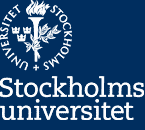 PhD student in Materials Chemistry
PhD student in Materials Chemistry
at the Department of Materials and Environmental Chemistry. Closing date: 24 April 2018.
The Department of Materials- and Environmental Chemistry (MMK) is one of the largest departments at the Faculty of Natural sciences with about 130 employees. The research activities of MMK are in the areas of Materials and Solid-state Chemistry focusing on different classes of materials; e.g. ceramics and glasses, self-assembled and porous materials, and soft matter. The work often encompasses synthesis, characterisation by X-ray diffraction and electron microscopy, NMR studies, modelling with computer simulations of materials with a potential for various applications. Environmental aspects are an important part of the research activities.
Project descriptionProject title: In-situ characterization of nanoparticles for electrocatalytic production of hydrogen.
Supervisor: Associate Prof. Germán Salazar-Alvarez, german.salazar.alvarez@mmk.su.se.
This PhD project will focus on the synthesis of catalytic nanomaterials for the partial oxidation of alcohols and their operando characterization using total scattering at synchrotron facilities and in-situ IR spectroscopy.
The target of the program is to develop efficient and selective catalysts through an effort involving theory, materials and electrocatalytic design and testing. The approach in the present project is in particular to fabricate and characterize nanomaterials to partially oxidize excess glycerol from biofuel production and waste carbohydrates from wood-based Kraft pulp processes to produce valuable chemicals and hydrogen. This PhD project is part of the program Materials for energy applications funded by the Swedish Foundation for Strategic Research (SSF). The project will be carried out in close collaboration within the project consortium consisting of researchers from KTH and SU and a couple of Swedish enterprises. A considerable part of the experiments will be carried out at synchrotron facilities around the world, primarily in Hamburg.
The successful candidate should have a background in chemistry or materials science with an interest in nanoparticle synthesis and in utilizing characterization methods such X-ray diffraction with Rietveld analysis. Experience in PDF analysis of nanomaterials and other related synchrotron techniques is advantageous. Knowledge of IR spectroscopy and TEM is meritorious but not a requirement.
More details on requirements and how to apply at